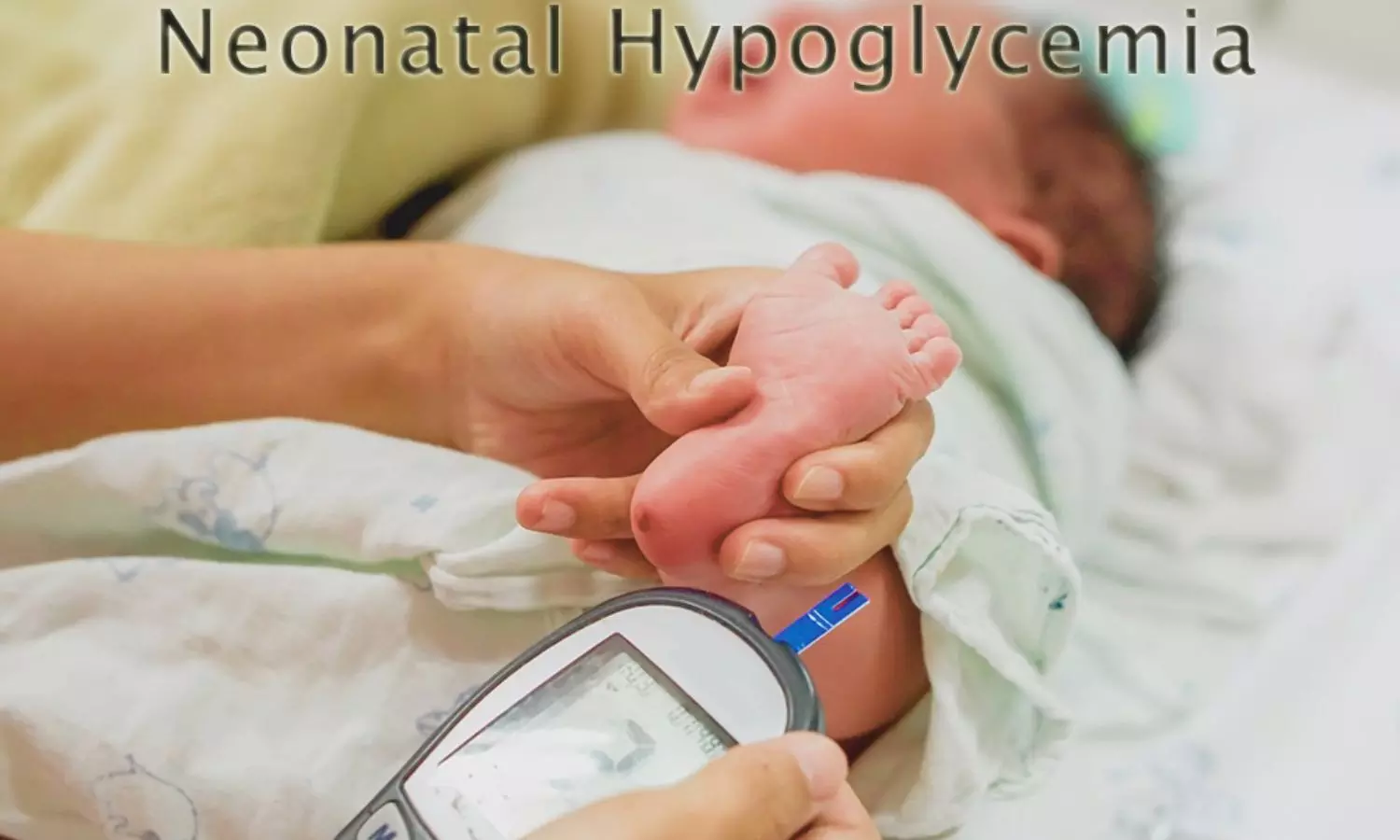
New Zealand: In a landmark randomized clinical trial, diazoxide has emerged as a promising therapeutic option for the management of severe or recurrent neonatal hypoglycemia. This groundbreaking research offers new hope for infants at risk of life-threatening drops in blood sugar levels, presenting a potential paradigm shift in the approach to neonatal care.
The randomized clinical trial of 74 newborns revealed that treating severe or recurrent neonatal hypoglycemia with diazoxide did not reduce the time to resolution of hypoglycemia. However, it reduced time to enteral bolus feeding and weaning from intravenous fluids, hypoglycemia duration, and frequency of blood glucose testing than placebo.
"Further investigation of low-dose oral diazoxide is warranted in newborns who do not respond to initial treatment of hypoglycemia with dextrose gel and breastfeeding," the researchers wrote in JAMA Network Open.
Neonatal hypoglycemia, characterized by low blood glucose levels in newborns, is a severe condition that can lead to neurological impairment and even death if left untreated. While intravenous glucose infusion has long been the standard treatment for severe cases, some infants fail to respond adequately to this therapy, highlighting the need for alternative approaches.
Don Laing, Liggins Institute, University of Auckland, Auckland, New Zealand, and colleagues evaluate whether early, low-dose oral diazoxide for severe or recurrent neonatal hypoglycemia reduces time to resolution of hypoglycemia, defined as enteral bolus feeding without intravenous fluids and normoglycemia for at least 24 hours.
For this purpose, the researchers conducted a 2-arm, placebo-controlled randomized clinical trial from 2020 to 2023 in tertiary neonatal units at 2 New Zealand hospitals. Participants included neonates born at 35 or more weeks’ gestation and less than one week of age with severe hypoglycemia (blood glucose concentration <22 mg/dL or <36 mg/dL despite two dextrose gel doses) or recurrent hypoglycemia (≥3 episodes of a blood glucose concentration <47 mg/dL within 48 hours).
Newborns were randomized in a 1:1 ratio to receive diazoxide suspension (loading dose, 5 mg/kg; maintenance, 1.5 mg/kg every 12 hours) or placebo, titrated per protocol.
Of 154 newborns screened, 75 were randomized, and analysis included 74 with evaluable data (mean gestational age for the full cohort, 37.6 weeks), 36 in the diazoxide group, and 38 in the placebo group. Baseline characteristics were similar: in the diazoxide group, the mean gestational age was 37.9 weeks, and 72% were male; in the placebo group, the mean gestational age was 37.4 weeks, and 71% were male.
The primary outcome was time to resolution of hypoglycemia compared between groups using adjusted Cox proportional hazards regression. Prespecified secondary outcomes, including duration of hypoglycemia, several blood glucose tests and episodes of hypoglycemia, and weaning from intravenous fluids and time to enteral bolus feeding, were compared. Newborns were followed up for at least two weeks.
The study led to the following findings:
- There was no significant difference in time to resolution of hypoglycemia (adjusted hazard ratio [AHR], 1.39), possibly due to increased episodes of elevated blood glucose concentration and longer time to normoglycemia in the diazoxide group.
- Resolution of hypoglycemia, when redefined post hoc as an enteral bolus feeding without intravenous fluids for at least 24 hours with no further hypoglycemia, was reached by more newborns in the diazoxide group (AHR, 2.60).
- Newborns in the diazoxide group had fewer blood glucose tests (adjusted count ratio [ACR], 0.63) and episodes of hypoglycemia (ACR, 0.32), reduced duration of hypoglycemia (adjusted ratio of geometric means [ARGM], 0.18), and reduced time to enteral bolus feeding (ARGM, 0.74) and weaning from intravenous fluids (ARGM, 0.72).
- Only 6% of newborns treated with diazoxide had hypoglycemia after the loading dose compared with 53% with placebo.
The findings revealed that early low-dose oral diazoxide did not reduce the time to resolution of hypoglycemia in late preterm through full-term newborns with severe or recurrent hypoglycemia but reduced time to establishing enteral bolus feeding and weaning from IV fluids and reduced the hypoglycemia duration and frequency of heel pricks for blood glucose testing compared with placebo.
"Further investigation of diazoxide use is warranted in newborns whose condition is refractory to the initial management of transitional hypoglycemia with dextrose gel and breastfeeding," the researchers concluded.
Reference:
Laing D, Walsh EPG, Alsweiler JM, et al. Diazoxide for Severe or Recurrent Neonatal Hypoglycemia: A Randomized Clinical Trial. JAMA Netw Open. 2024;7(6):e2415764. doi:10.1001/jamanetworkopen.2024.15764
from Medical News, Health News Latest, Medical News Today - Medical Dialogues | https://ift.tt/M4FOwPG

0 Comments